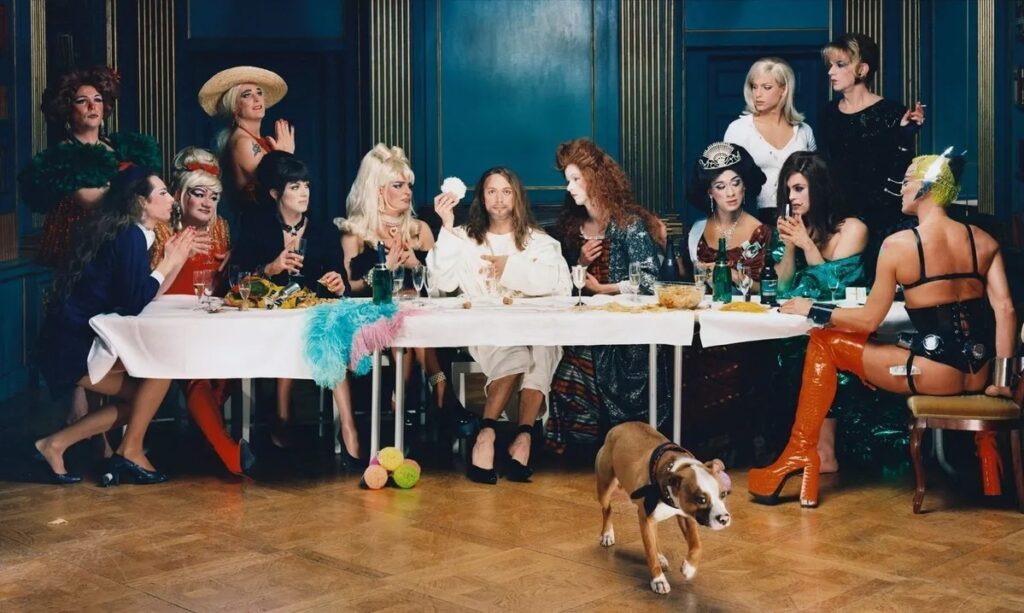The opening ceremony of the Olympic Games in Paris has sparked controversy around the world. Did Thomas Folly (the artistic director) parody Leonardo da Vinci’s “Last Supper” with drag queens and gender diverse people? If he did, this would not be the first reimagining of da Vinci’s tableau over the years. So what is so offensive about this representation?
Apologists for Folly point out, contrary to the assumption that anything that looks remotely Christian must be about Christians, this drag tableau was alluding to the Olympics’ Greek origins, with Dionysus – god of pleasure, festivals, ritual madness – and a Greek bacchanal. The latter being a lavish, noisy feasting affair held in ancient times to celebrate events, like the Olympics.
Yet, when you create a piece of theatre, part of your art is knowing who you are affirming and who you might be offending. When you unapologetically ask drag queens and gender-diverse people to dress up, act up, and take a lead, you know that you are not just affirming them and all who similarly identify, but you are challenging the people and cultures that disapprove of and denigrate gender diversity and its celebration. Of which there are plenty around the world, and within the Christian church.
In 1998 the photographer Elisabeth Ohlson Wallin created a depiction of da Vinci’s “Last Supper” (See photo). She was angry that some Christians were saying AIDS was God’s punishment. And so she created a response where those at the Supper were gender diverse and in drag. She both affirmed Queer inclusion and angered those with the punishing god. My guess is that da Vinci, who was either gay or bisexual, would have applauded.
Similarly with the Paris Olympic tableau, whether the source material is from ancient Greece or the Jesus tradition, the message is the same. It asks us to think about who can be ‘the table.’ ‘The table’ being a metaphor about belonging, whether belonging in a society or belonging in a religion. Which was Da Vinci’s point when in painting his masterpiece he substituted the apostles faces for those of his friends. It was about who can be included.
Let’s remember too, as the American Civil Liberties Union reminds us, there are currently 527 anti-Queer bills in the USA, most of which are direct attacks upon transgender youth. And that’s just the USA. Around the world there are many countries that condemn and persecute Queer people. The very existence of these American bills (whether they pass or not) impacts the mental, spiritual, and physical well-being of those identifying as Queer. A number of those bills specifically target drag performers.
Having drag performers centre stage at the Olympics, on one of the biggest stages in world theatre, is not a politically neutral act. Being able to have that act understood as referring to Jesus and the twelve apostles is not a politically neutral act. Doing this in France, with the ascendancy of the Far Right and its alliance with conservative Christianity, is not a politically neutral act. It is about taking sides. The side of broadening the boundaries of inclusion.
The side Jesus was on. The side that got Jesus killed.
